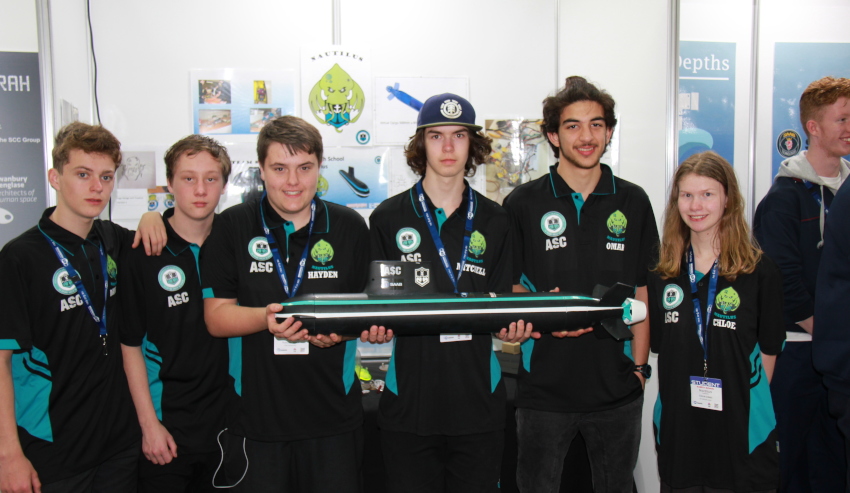In support of Australia’s naval shipbuilding agenda, ASC Shipbuilding has backed the STEM education SUBS in Schools program, mentoring one South Australian high school team.
The Australian submarine company provided its experience in real-world submarines, as the builder and maintainer of the Collins Class submarine fleet, to the Le Fevre High School team.
ASC’s interim chief executive Stuart Whiley said STEM (science, technology, engineering and maths) initiatives like SUBS in Schools are ideal for educating students and promoting careers in defence industry to Australia’s future workforce.
"It is vitally important that Australia educates more students in STEM, ensuring that we have a highly skilled and capable workforce to support the federal government’s naval shipbuilding agenda," said Whiley.
"As an employer of choice, tasked to work on the country’s most sophisticated naval platforms, it is imperative that ASC invests in its future workforce, promoting STEM learning and career pathways to high school students."
Students were paired with two ASC mentors, Nick Jones, lead electrical engineer, electrical systems and Rikus van Altena, graduate engineer, applying their real life experience.
The teams build a remote-controlled submarine model, one-metre long, which is put through its paces in ‘Sea Trials’, where students guide their submarines through a pool.
The program is run by Re-Engineering Australia, in association with the Department of Defence, as a means to foster students’ interest in science, the technology of submersible vehicles and submarines, and more broadly STEM subjects, through project-based learning.
Le Fevre High School’s co-ordinator, design and technology/STEM Eddie Grzeskowiak said the program has provided students with a better understanding of the work required in planning projects, as well as offering them chance to gain a better understanding about the careers of their mentors.
"The industry mentorship structure benefits students in not only understanding the rigour and attention to detail required in planning projects, but they also seek advice from the mentors about their work, the training and/or education path they took to get there, and most of all their enjoyment in their chosen career," said Grzeskowiak.
"It has been pleasing to see students’ growth throughout the program and the pride they take with their accomplishments; they receive great enjoyment from even the smallest aspects of the project.
"Since commencing the program, a number of students involved have become more interested in enrolling in our Naval Engineering program at Le Fevre High School and pursuing a career in support of the naval shipbuilding program post studies."
In May this year, the federal government’s naval shipbuilding plan confirmed that Australia will build its new fleets of submarines, frigates and patrol vessels in Adelaide and Perth as part of a new continuous shipbuilding policy.
ASC offers entry-level programs for graduate engineers and tradespeople to ensure its continual workforce development.
ASC also works closely with universities to shape the next generation of submarine and shipbuilders, with ASC subject matter experts developing and delivering key courses within the master's of marine engineering at the University of Adelaide.
Over 250 specialist engineers are employed across ASC in submarine capability and as the lead shipbuilder in the Air Warfare Destroyer program.



